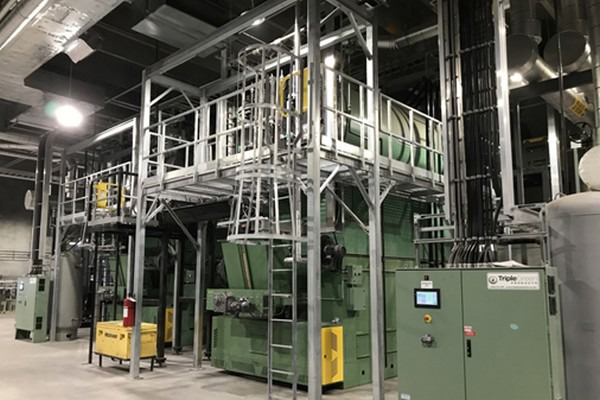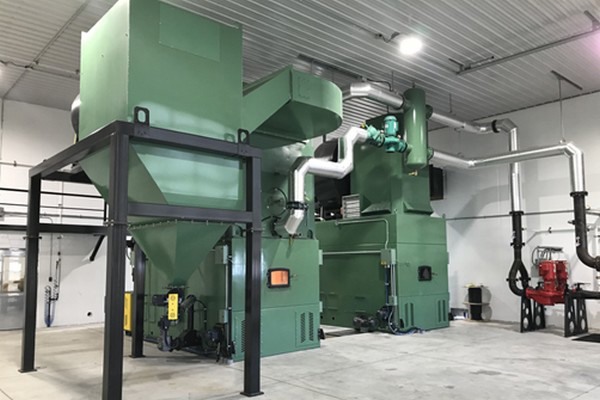"With shortages in natural gas, greenhouses in the Netherlands and all over Europe were scrambling to find different sources of heat, which drove up the price of biomass in Canada as well as the demand for our systems," says Lyall Wiebe, Co-Founder and President of Triple Green Products.
Based in Manitoba, Canada, Triple Green provides biomass-fuelled boiler systems that offer world-class efficiency, low emissions, and feedstock flexibility. From its mainstay boiler systems, Triple Green has developed additional products such as composting and dehydrating systems and the BioDryAir drying system. Triple Green's boiler system is unique in how air for combustion is introduced into the chamber, with oxygen first pushed through the small vents in the chain grate and then into the fuel or feedstock to create the first burn. Then, fans and nozzles blow air over the fire to create a second burn of the gases.
"We have an extremely hot fire because of how we uniquely introduce oxygen to the flame. This allows us to reduce emissions, meet the most stringent environmental tests, and be safely installed in a wide range of environments from greenhouses to hospitals," explains Lyall.

Balancing volatility in the biomass heating industry
Greenhouses have been one of Triple Green's biggest customer bases for years, but the market is heavily dependent on the natural gas industry, as low natural gas prices typically drive greenhouses towards natural gas-based systems. But as the price of natural gas rises or the availability comes into question, Lyall explains that the phones begin to ring more often as greenhouses look for alternatives. Interest is also spiking as a result of carbon tax concerns and a desire to reduce the use of fossil fuels.
A major advantage of the Triple Green boiler systems is their ability to handle multiple types of feedstocks, such as construction and demolition waste (CND) and other hard-to-burn ag waste materials, while also being able to use large wood chips and many forms of pellets.
"One of our greenhouse clients in southern Ontario has three of our biomass boiler systems has a combined 100-million BTU's and heats the greenhouse with CND waste from Toronto. Burning CND is not new itself, but it is newer to the greenhouse industry," says Lyall. "And when you burn CND, there is no cheaper fuel out there."

Composter and dehydrator solutions for quick organic waste management
Triple Green also provides composter and dehydrator solutions that can be used by greenhouses to process organic waste. As Lyall explains, both technologies work in a similar manner, although the dehydrator introduces a heat component that can cut the processing time down from three weeks to 24 hours depending on feedstock or the outcome required.
"The frustration with composting is that if you don't have the recipe exactly right, it won't compost well. Using the dehydrator allows us to take the science out of it altogether and process waste quickly.
As Triple Green's products are used in multiple domains and applications, the company is frequently on the road to showing their products at shows, meeting clients, etc. For the greenhouse space specifically, Triple Green is a proud and recurring exhibitor at the Canadian Greenhouse Conference in Niagara Falls and Cultivate-AmericanHort in Ohio.
For more information:
Lyall Wiebe, Co-Founder and President
Triple Green Products
triplegreenproducts.com
